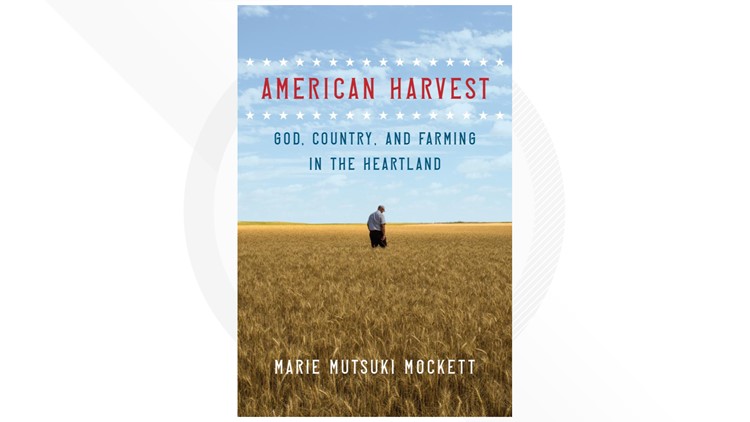MINNEAPOLIS — Marie Mutsuki Mockett's family has owned a 7,000-acre wheat farm in Nebraska for more than 100 years. That's where Mockett’s father was raised, but Mockett grew up in California. She is mixed-race and knew little about farming when she inherited the land.
But her book "American Harvest: God, Country, and Farming in the Heartland" explores the divide of "city people" and rural America. She does that by accompanying a group of evangelical Christian wheat harvesters through the heartland at the invitation of a farmer who cut her family’s fields for decades.
Gia Vang
I have often wondered about this "divide" myself having grown up with many parallels to Mockett. I was raised in a metro city in California. The author is mixed-race, her mother Japanese, and I am also an Asian woman. I knew very little about the farming life and culture.
I think the book is an important story to tell about the hard and deep conversations happening that many in both worlds don't want to have. I found myself surprised by the depths of their conversations about religion. There were more conversations about Bible skepticism than I guess I anticipated. I was also very curious about all the history of wheat farming and the type of wheat brought here by Mennonites, mostly because my partner grew up Mennonite.
It's a bit of a dense read, so you truly have to be in the mood for religious discussions and history lessons from American's Heartland, but the intention is there and conversations like these may be needed more now than ever.
Jennifer Austin
If everyone in this country approached discourse the way the people in this book did, we'd all be better off.
I've often thought about the divide between different parts of our country since Donald Trump was elected President. It often feels like political and ideological differences amount to nothing more than a shouting match (usually taking place on social media). Mockett shows what can happen when you take the time to truly understand someone's background.
To me, this book is about approaching relationships with compassion - not judgment. As Gia noted, it is a lengthy read. But if this topic interests you, it's worth it.



